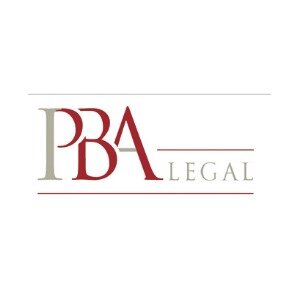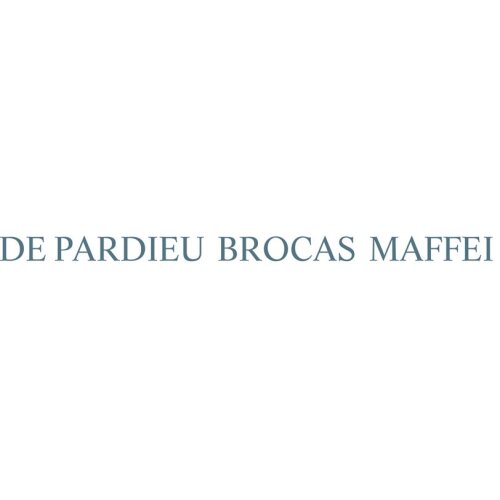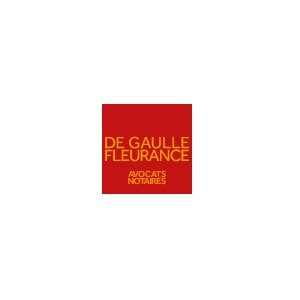Best Sanctions & Export Controls Lawyers in Paris
Share your needs with us, get contacted by law firms.
Free. Takes 2 min.
List of the best lawyers in Paris, France
About Sanctions & Export Controls Law in Paris, France
Sanctions and export controls are legal measures imposed by national and international authorities to regulate or restrict the trade, transfer, or exchange of goods, services, technology, and financial transactions with certain parties or countries for security or foreign policy reasons. In Paris, France, these laws are critical for companies and individuals conducting business internationally, especially given France's role in the European Union and its commitment to global security. These regulations are complex and constantly evolving due to changing geopolitical landscapes.
Why You May Need a Lawyer
Navigating sanctions and export control laws is challenging due to their complexity and the severe penalties for non-compliance. Here are some common situations where legal assistance is essential:
- If your company exports goods, technology, or software outside France or the EU
- When you are unsure if your goods or services are subject to French, EU, or international sanctions
- If you receive a government inquiry or request for information regarding your business deals
- When your business partners or customers are located in sanctioned countries or appear on restricted lists
- If you need to develop or update a compliance program
- When you face allegations of breaching sanctions or export control regulations
- If your assets have been frozen or your transactions blocked
- During mergers, acquisitions, or other corporate restructuring involving international entities
Local Laws Overview
In Paris, France, sanctions and export controls are governed by several layers of law:
- European Union Law: As an EU member, France enforces EU-wide regulations and sanctions adopted by the Council of the European Union. These may target specific countries (such as Iran, Russia, or North Korea), entities, or individuals, prohibiting certain exports, imports, or financial transactions.
- United Nations Sanctions: France enforces UN Security Council sanctions that are transposed into French and EU law.
- French National Law: The French customs code, monetary and financial code, and the defense code regulate export controls for dual-use goods (items with both civilian and military applications) and military items. Licensing may be required from French authorities before exporting certain goods or technology.
- US Extraterritorial Impact: Businesses in France also need to be aware of the potential extraterritorial effects of US sanctions and export control laws, which can impact operations involving US-origin goods or technology.
Violations can result in serious consequences, including heavy fines, imprisonment, and reputational damage.
Frequently Asked Questions
What are "sanctions" in the context of French law?
Sanctions are legal measures imposed by governments or international bodies to restrict activities with certain countries, entities, or individuals, usually for reasons related to foreign policy, security, or human rights.
What are "export controls" in France?
Export controls are regulations that limit or prohibit the export of certain goods, technology, or software, particularly those that could have military uses or could end up in the hands of undesirable end users.
Who is responsible for enforcing sanctions and export controls in France?
Multiple bodies are involved, including the Ministry for Europe and Foreign Affairs, the Ministry of Economy and Finance, the Directorate General of Customs and Indirect Taxes, and the Treasury.
Do EU sanctions apply directly in France?
Yes, EU regulations are directly applicable in all member states, including France. French authorities are responsible for enforcement and compliance monitoring.
Are all exports subject to controls?
No, only specific categories such as dual-use goods, military items, certain chemicals, and items listed in relevant control lists. However, comprehensive embargoes can apply to specific countries or sectors.
What are the penalties for non-compliance?
Penalties can include substantial financial fines, criminal prosecution, imprisonment, and administrative sanctions such as exclusion from public procurement or freezing of assets.
Can US sanctions affect businesses based in France?
Yes, through extraterritorial application, US restrictions may impact French firms dealing in US-origin goods or with US persons, or conducting transactions in US dollars.
How can my company check if a transaction is allowed?
Legal counsel or compliance officers can check the relevant regulations, embargo lists, and restricted party lists. Consulting a lawyer is strongly advised for complex cases.
Are there licensing procedures for exports from France?
Yes, exporting certain goods, technologies, or software may require an export license from the competent French authority, especially for dual-use or military items.
What should I do if I suspect a breach of sanctions or export control rules?
Immediately seek legal advice, halt the relevant transactions, and, if required, consider making a voluntary disclosure to French authorities to mitigate potential consequences.
Additional Resources
For more information or guidance, the following resources and organizations offer helpful information or support:
- French Ministry for Europe and Foreign Affairs - for information on France's international obligations and foreign policy positions
- Directorate General of Customs and Indirect Taxes - for compliance guidance and licensing procedures
- French National Agency for the Security of Information Systems (ANSSI) - for technology control and cyber-export issues
- EU Sanctions Map (maintained by the European Union) - for up-to-date EU measures
- Professional associations and chambers of commerce in Paris dealing with international trade
Next Steps
If you require legal assistance in sanctions and export controls in Paris, France, consider the following steps:
- Gather all relevant documents relating to your business operations, goods, partners, and past transactions
- Identify specific concerns or questions you have regarding compliance or potential exposure
- Consult with a lawyer specializing in international trade, sanctions, and export controls, ideally with knowledge of both French and EU regulations
- Consider conducting a compliance audit or risk assessment, especially if your business activities cross borders
- If facing an investigation or enforcement action, engage a lawyer promptly to represent your interests and respond to authorities
- Develop or update your company's internal compliance policies and training programs to reduce future risk
Sanctions and export controls law is a highly specialized field. Professional advice is crucial to navigate the complexities and ensure your operations remain compliant with all applicable regulations in Paris, France and beyond.
Lawzana helps you find the best lawyers and law firms in Paris through a curated and pre-screened list of qualified legal professionals. Our platform offers rankings and detailed profiles of attorneys and law firms, allowing you to compare based on practice areas, including Sanctions & Export Controls, experience, and client feedback.
Each profile includes a description of the firm's areas of practice, client reviews, team members and partners, year of establishment, spoken languages, office locations, contact information, social media presence, and any published articles or resources. Most firms on our platform speak English and are experienced in both local and international legal matters.
Get a quote from top-rated law firms in Paris, France — quickly, securely, and without unnecessary hassle.
Disclaimer:
The information provided on this page is for general informational purposes only and does not constitute legal advice. While we strive to ensure the accuracy and relevance of the content, legal information may change over time, and interpretations of the law can vary. You should always consult with a qualified legal professional for advice specific to your situation.
We disclaim all liability for actions taken or not taken based on the content of this page. If you believe any information is incorrect or outdated, please contact us, and we will review and update it where appropriate.
















